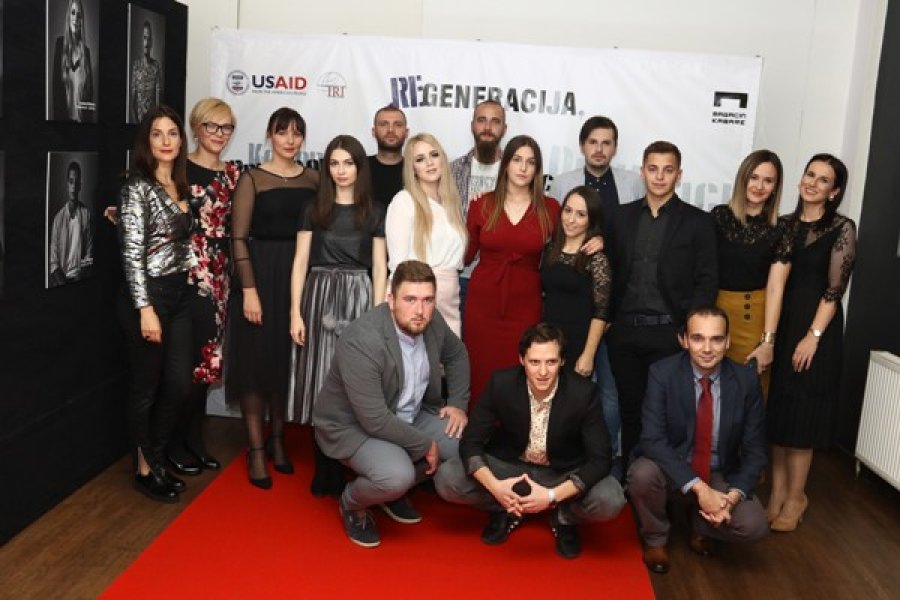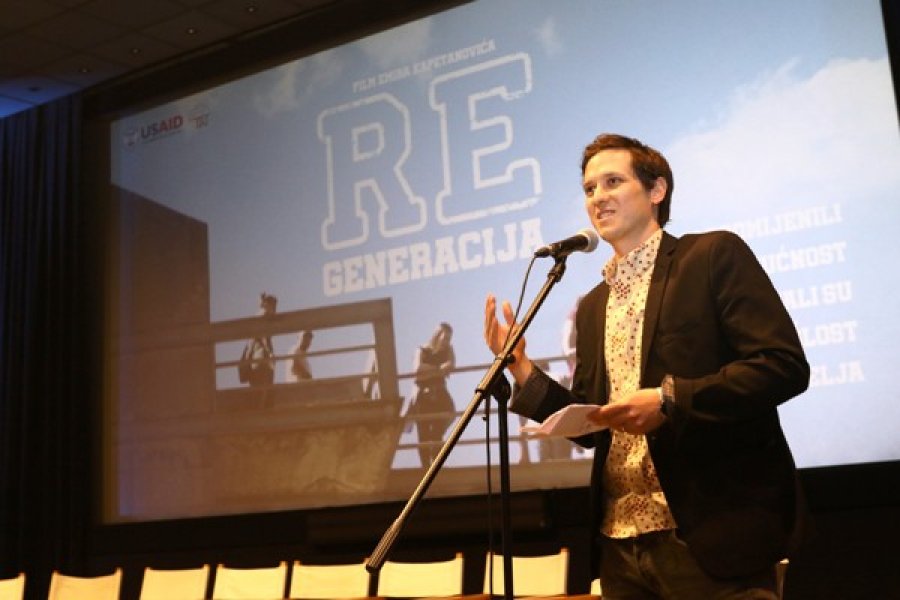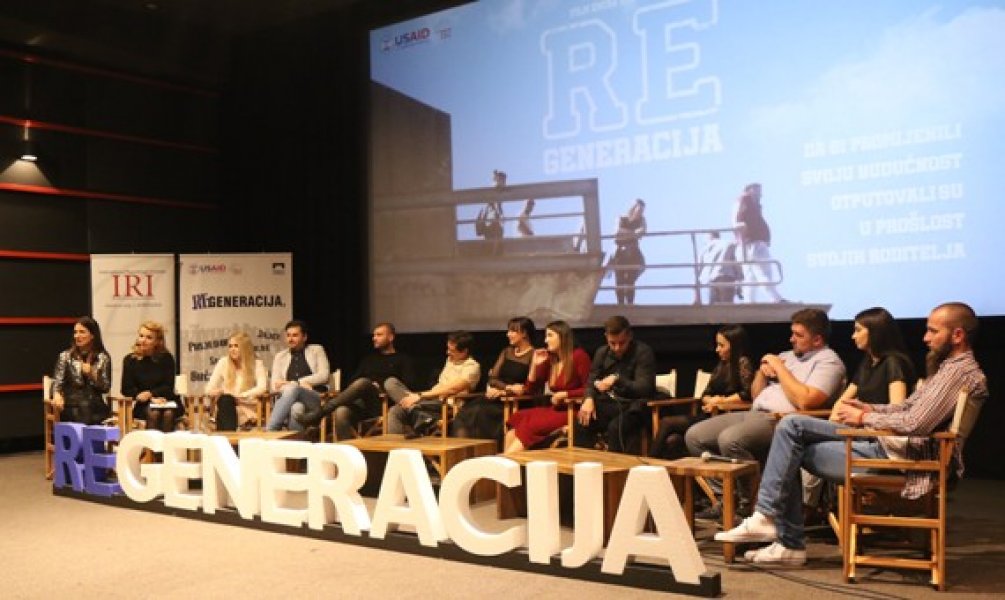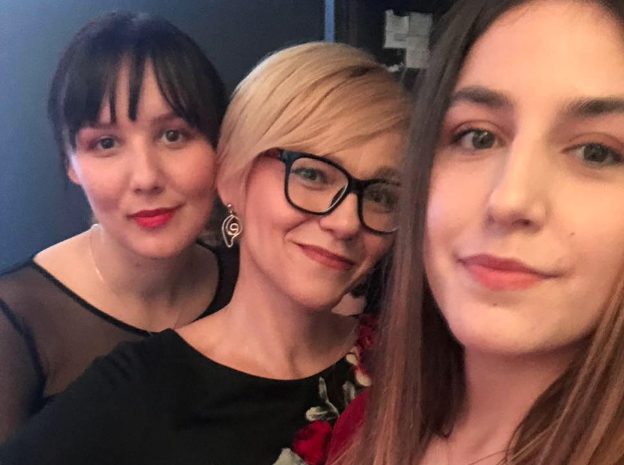
A question is crystallized, which unites everyone, above and beyond all narratives about the past, and that is: When and how will those that have survived the war, stop monopolizing the discourse and focus to the point where they are preventing those “on whose shoulders the world remains” from working to improve the quality of their own lives?
Author: Nerina Cevra
A few days ago premiere screening was held of the film, directed by Emir Kapetanović, ReGeneracija, in the Cinema Meeting Point in Sarajevo This project is the first such creation for me, and I must say that in a way a longstanding wish has come true, the purpose of my return and the reason for my engagement in BiH after more than two decades of being the global nomad.
As part of the Magacin Kabare team, I was a part of creating something that already had, and will continue to have concrete positive impact on the people in BiH, as well as on me personally. We travelled to 13 towns together, learned hundreds of truths, life paths, and narratives about the hardes time in our recent history. The Webster Dictionary defines “regeneration” as a process of replacement of a (bodily part) by a new growth or tissue. As a process of transformation into a different, better state. Regeneration also leaves a scar and becomes an integral part of the new tissue which replaces the injured one.
The Ambassadors in the film ReGeneration are an example of our society’s regeneration. With their example, these young people must be part oaf a critical mass in the BiH society. A group that will work on making their own future better by investigating the narratives about the past from their parents and their communities. Film ReGeneration had great impact most importantly on the Reconciliation Ambassadors. It helped them use opportunities that come their way in order to improve their lives.
These ten young people, each of them refugees, born in one and living in a different place in BiH, are a direct product of a war they do not even remember. People have moved, willingly, and in most cases, were forced to, and now we have artificial communities that are from the beginning unable to “fit” adequately. This is one of the symptoms of post-traumatic stress syndrome (PTSS), as a consequence of having lived in the conditions of war for extended period of time. Collective PTSS.
A collective wound that was opened in the 90.-ies, and which we still keep open to this day. The Ambassadors in ReGeneration spoke to more than 200 people throughout BIH, veterans, victims, politicians, religious leaders, journalists, and so on. They documented their stories, their viewpoints and their authentic perspectives about what they went through during the war of the 90.-ies.
As such, they are concrete testimonies to the diversity of experiences and the depth of the pain and horrors that people in BIH survived during the war. Their statements can and should be taken into account when things are discussed that affect their lives. Especially when it comes to how their experience is interpreted, in national as well as international initiatives and projects that focus on improving statehood, stability and social progress of our communities.
For me, they are an example of how precisely that which has evaded the international community for decades. Through authentic narration, as presented in the film, we can form a picture of the complexities of that time. This will make it clear that our interpretations of those will inevitably be affected by those same complexities.
A question is crystallized, which unites everyone, above and beyond all narratives about the past, and that is: When and how will those that have survived the war, stop monopolizing the discourse and focus to the point where they are preventing those “on whose shoulders the world remains” from working to improve the quality of their own lives?
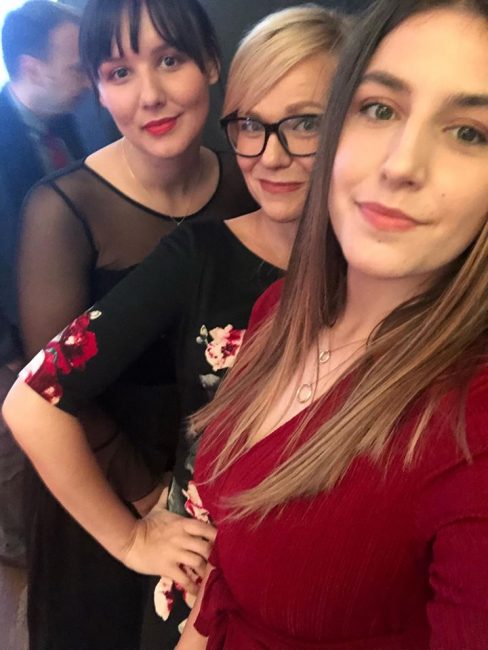
We must first of all also ackonwledge that no matter what category of society we interviewed, everyone was in one way or another, wounded as a consequence of the war. That pain, and the legitimacy of that wound must be respected and acknowledged, in order for true catharsis to be able to take hold in BiH society. I say this from personal experience – no, you are not allowed to take away my right to my personal narrative and personal experiences of my life. Regardless of what you think about them.
Especially when it comes to the horrors that were routine occurrence in BiH society in that time. My compatriots in ReGeneration confirm that stance. They also confirm my belief that justice is very important to us. Criminals must in no way be supported, from no person in our country. Even victims of torture say that they themselves do not have the right to support anyone who committed crimes in the name of their national group. Their actions have been condemned in international law, as unacceptable means of conducting war, and we must stand on the right side of history here. Without judging any one group generally, of course, the blame must be individualized to be effective. But justice must come.
As the Ambassadors taught me, this must begin with the personal sphere. It must include confronting own truths and narratives and own past, in order to make a decision as to what role that will play in our lives and in our country today. And tomorrow. I am extremely honored to have had the opportunity to be a part of this quest, and I hope that our future adventures will show that which I believe to be true – we can do better.
Nerina Čevra is from Mostar, she left BiH in 1993, and after being a refugee in Italy and Germany, where she graduates highschool and begins university studies, he moves to the US with her family, to Grand Rapids, Michigan. In Washington, DC she gained the title of Juris Doctor at the American University Washington College of Law. She believes it was great fortune for her to have as her mentor Paul Williams, the legal advisor for the BiH delegation in Dayton. Under his mentorship, she completed a J.D. programme, and researched and studied international law, human rights, humanitarian law, as well as post-conflict constitutional reform issues and legal reforms and development of the rule of law and human rights. During and after her university studies she worked on global processes around disarmament, rights of victims and persons with disabilities and transitional justice. During that time, she she lived in Washington, DC, London, UK and Geneva. During negotiations for the Convention on the rights of persons with disabilities she served as Legal Adviser for the BiH government delegation and helped put BiH on the map of diplomatic negotiations in the UN. She lived in London from 2010-2014, and then returns to Hercegovina, to finally settle in Sarajevo as Country Representative of the Westminster Foundation for Democracy in BiH, where she ran projects promoting participation of women in politics. Since last year, she is the CEO of Magacin Kabare, Association for promotion of culture and art in Sarajevo. There, among other things, she runs the project Re:Generacija. It is as part of this project that the documentary film was made too, which follows 10 young people on their quest toward reconciliation in BiH.
